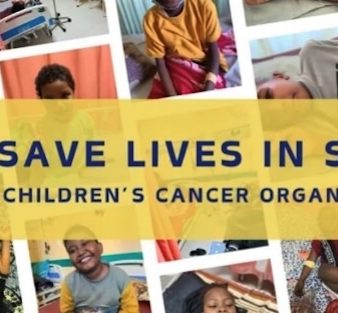Sudan Receives First Delivery of COVID-19 Vaccines with Over 800,000 Doses

Sudan has become the first country in the Middle East and North Africa (MENA) region to receive vaccines against COVID-19 from the COVAX facility. Over 800,000 doses of the AstraZeneca vaccine arrived at the Khartoum International Airport on 3 March 2021.
Safe Landing! 🇸🇩
— UNICEF Sudan (@UNICEFSudan) March 3, 2021
The first consignment of #COVID19 vaccines has arrived in #Sudan through the #COVAX initiative. Congratulations!
This evening, #Sudan makes history as the first country in the MENA (Middle East North Africa) region to receive these vaccines. pic.twitter.com/8xcIj5qGzV
تسلم السودان الدفعة الأولى من لقاحات “كوفيد-19” والتي تحتوي على 820،000 جُرعة.
— وزارة الصـحة – السـودان (@FMOH_SUDAN) March 3, 2021
حيث يعتبر السودان أول دولة في منطقة شرق المتوسط تحصل على اللقاحات عبر آلية كوفاكس، وستكون الأولوية للكوادر الطبية الموجودة في الصفوف الأمامية لمجابهة فايروس كورونا.#كوفاكس_سودان#COVAXSudan pic.twitter.com/74VxenEKkB
Sudan is a participant in the COVAX Facility and requested 17 million doses of COVID-19 vaccines to cover 8.5 million people, representing 20% of its population. Sudan is confirmed to receive 3.4 million doses of AstraZeneca vaccine. These doses will arrive in two shipments – the first which arrived on 3 March targets healthcare workers and people aged 45 and above with medical conditions and living in areas with high transmission or anticipated high transmission across the country. The remaining doses are expected in the second quarter of 2021.
The first batch of vaccines were delivered with UNICEF’s support through COVAX, a coalition co-led by the World Health Organization (WHO), Gavi, the Global Vaccines Alliance and the Coalition for Epidemic Preparedness Innovations (CEPI), working on the equitable distribution of COVID-19 vaccines to countries regardless of their income.
The delivery follows the arrival of 4.5 metric tons of syringes and safety boxes, part of a Gavi-funded and supported global stockpile, that UNICEF delivered on behalf of the COVAX Facility on 26 February 2021, critical for the safe and effective vaccination. WHO has worked with national authorities to put a vaccination strategy in place that includes training vaccinators, ensuring vaccine safety, and surveillance for adverse effects.
The initial consignment of vaccines received on 3 March in Sudan will support the vaccination of health care workers and people above 45 years old with chronic medical conditions, living in areas with high transmission or anticipated high transmission, marking the first phase of the nationwide vaccination campaign.
By vaccinating Sudan’s healthcare workers first, they can continue providing life-saving services and maintain a functional healthcare system. Healthcare workers need to be protected first in order to protect the lives of others.
Sudan’s Minister of Health, Dr Omer Mohamed Elnagieb, urged those eligible to register and get vaccinated as soon as they get an appointment.
As of 1 March 2021, Sudan had over 28,545 confirmed COVID-19 cases and 1,895 deaths, since the first COVID-19 positive case was announced on 13 March 2020.
التقرير الوبائي ليوم الاثنين الموافق 1 مارس 2021م .
— وزارة الصـحة – السـودان (@FMOH_SUDAN) March 2, 2021
عدد الحالات الجديدة ( 36 حالة ).
عدد التعافي الجديدة ( 38 حالة ).
عدد الوفيات الجديدة ( 3 وفيات ). #كورونا_الموجة_الثانية pic.twitter.com/GLRmppdr7H
WHO Representative in Sudan, Dr Nima Saeed Abid, confirmed that the vaccines received on 3 March are safe and have been approved through WHO’s Emergency Use Listing Procedure for use in Sudan and other countries. With Gavi’s support, UNICEF and WHO will support the government of Sudan roll out the vaccine campaign and organise nationwide vaccination drives to reach all those eligible with vaccines.
Everything you need to know about AstraZeneca
The Oxford/AstraZeneca vaccine, also known as ChAdOx1 nCoV-19, or AZD1222, is a viral vector vaccine. Scientists used an adenovirus, originally derived from chimpanzees, and modified it with the aim of training the immune system to mount a strong response against SARS-CoV-2, the virus that causes COVID-19.
The AstraZeneca vaccine against COVID-19 has an efficacy of 63.09% against symptomatic SARS-CoV-2 infection. The recommended dosage is two doses given intramuscularly (0.5 ml each) with an interval of eight to 12 weeks. Additional research is needed to understand longer-term potential protection after a single dose. Longer dose intervals within the eight to 12 weeks range are associated with greater vaccine efficacy.
The vaccine can be stored at 2-8℃, which is the temperature of a normal fridge, making it possible for the vaccine to be easily and widely distributed. Other COVID-19 vaccines such as Pfizer’s mRNA vaccine must be stored at ultra-cold temperatures.
According to WHO, people with a history of severe allergic reaction to any component of the vaccine should not take it. The vaccine is not recommended for people younger than 18 years of age pending the results of further studies.
Source: UNICEF




